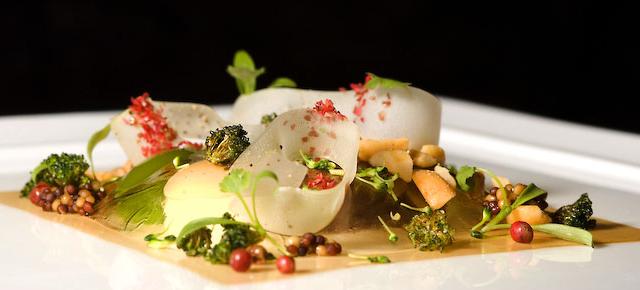So you want a table for two at Per Se, one of New York City’s toughest reservations. You play phone tag with the reservationist for a week, only to find the date you want is no longer available (in fact, nothing seems to be). But soon, thanks to a new startup, you’ll be able to go online, pick your date, and buy tickets for that dinner — just like you might select your floor seats to see the Knicks.
Ticketing systems have become slowly adopted in recent years by high-end restaurants, ostensibly to prevent no-shows and provide booking transparency. But the first restaurant ticketing startup Tock says it will serve diners in a whole new way by allowing them purchase an entire prix-fixe menu up front or pay a deposit on meals to guarantee their seat at a wide variety of restaurants, even at the neighbourhood joint on the corner.
With a variety of partners on board and a smart tech-focused replacement for current booking software, Tock claims it can be the killer app for restaurants. In an interview with Eater, restauranteur and creator Nick Kokonas likens it to the moment we were able to book travel directly from airlines online: “It’s going to be one of those things where: Imagine you had to call an airline right now to book an aeroplane ticket, or go to a travel agent,” Kokonas says. “It would seem weird… It will feel weird in five years to not just be on your phone and instantly make a purchase at a restaurant.”
While pre-selling tables has worked well for some superstar chefs, can this Ticketmaster for restaurants transform the industry of eating out? And how will it shake out for us hungry diners?
In a detailed blog post written earlier this year about the Chicago restaurants he owns with chef Grant Achatz, where he’s been refining the tickets process since 2011, Kokonas pointed out plenty of upsides for restaurant owners, who can devote less staff to managing reservations, book more tables, and waste less food. While the technological advancement of using an online reservation system like Open Table might help eliminate some of those human bottlenecks, Kokonas says that’s not good enough: Diners know that the tables on Open Table aren’t all the available tables, and since there’s no penalty or accountability, there are still no-shows.
For this very reason, Kokonas argues that moving exclusively to a ticketing system is much more democratic and creates a better relationship between restaurant and patron. You can clearly see for yourself what’s available and what you’re going to pay instead of feeling like you’re at the whim of a potentially subjective gatekeeper who calls you back a few days later and says something like “Sorry, we’re completely committed.” (They always say that.)
Obviously just like any ticketed event, there are downfalls. All sales on Tock are final, so you can’t get a refund, although you can transfer your tickets to someone else. Which also introduces the idea of scalpers — people who’d be selling access to these restaurants for inflated prices (however, there are plenty of companies that already do this for restaurants with regular reservation policies).
Here’s the most interesting — and potentially controversial — part of Tock’s model, though. Like tickets to sporting events, the system acknowledges there are better “seats” — in this case, peak dining times — and adjusts the prices accordingly. So you might pay more for the exact same food just to dine at said restaurant on a Saturday night. This is where I could see tickets becoming a problem. Nobody likes Uber’s surge pricing, and this is just the same principle applied to getting dinner. Ugh. Update: Kokonas reminds me that the dynamic pricing can go both ways: On a day with low demand, you could get a meal at a much lower price. Or a small $US10 deposit might end up increasing in value by the time you actually eat your dinner.
Tock has already lined up a list of investors like chef Thomas Keller, whose restaurants like the aforementioned Per Se and The French Laundry in Napa are some of the toughest reservations in the country. Keller’s restaurants will start using the ticketing system when it launches in early 2015. But what’s notable is that any restaurant can sign up to use the service, which will get them a tech-forward solution for booking their tables even if they decide not to sell tickets. Tock is also going to be used by Lettuce Entertain You, for example, a group of 90-restaurants that traffic in less fancy fare, like Mon Ami Gabi, a French chain in a few U.S. cities. That’s not quite the same as promoting an exclusive roster of chefs like Keller.
I’ve gladly purchased tickets for destination restaurants — a special occasion meal is important to me and having a ticket that guarantees my seat makes perfect sense. Plus, as someone who suffers from extreme phone-aversion, I’d definitely rather handle all my dinner reservations online without having to talk to a soul. But I’m not sure how keen I’d be to pay a deposit on a pizza that I’ll be eating a few days later — or pay extra just to eat that same pizza at 8:00 on a Saturday night. [Eater]
Top image via Alinea
